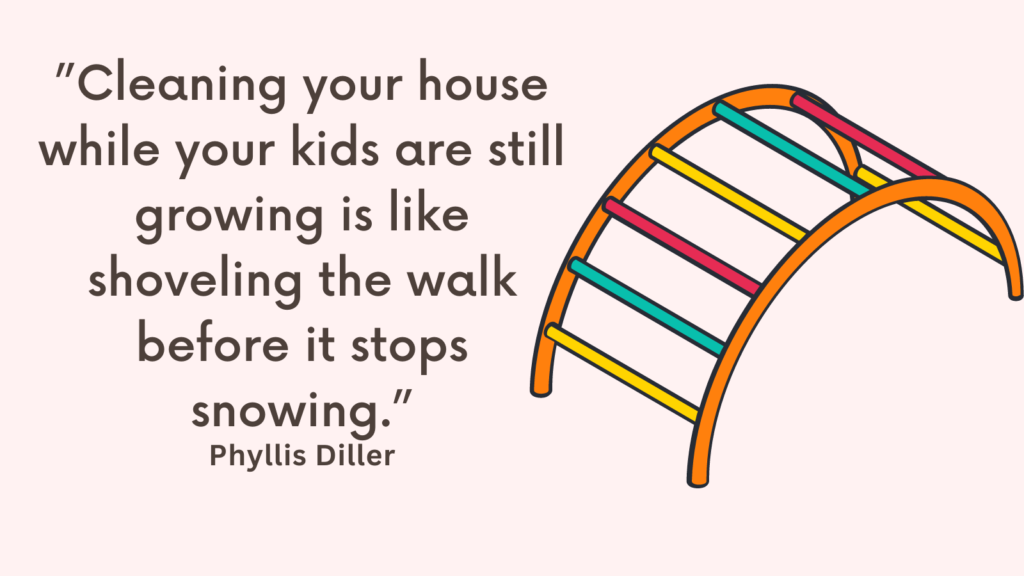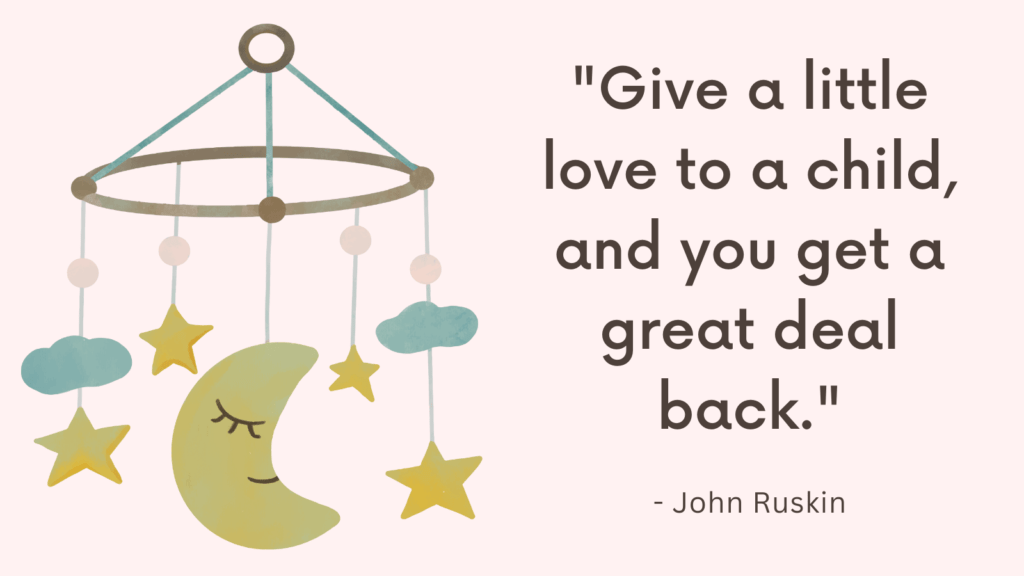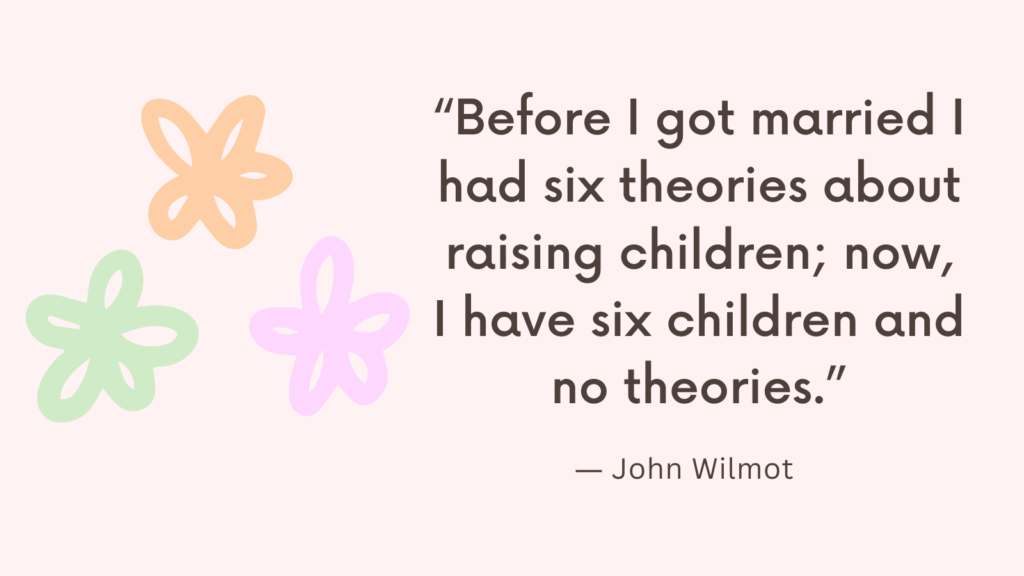In this post, you’re going to learn how to stop toddler from throwing food.
Why Toddlers Throw Food
Toddlers throwing food is a common behavior observed in many young children.
While it can be frustrating for parents, it’s important to remember that it is a normal part of their development and can be attributed to various factors.
1. Curiosity and Exploration
One of the primary reasons toddlers throw food is their innate curiosity and desire to explore their environment.
They are still learning about cause and effect, and throwing food allows them to observe what happens when they let go of an object.
It’s crucial to offer alternative ways for them to satisfy their curiosity, such as sensory play or safe objects specifically designated for exploration.
2. Communication and Expression
Toddlers often have limited verbal skills, making it challenging for them to express their needs, preferences, or frustrations effectively.
Throwing food can be a way for them to communicate their desires or dislikes.
Encouraging and modeling appropriate communication techniques, such as using words or gestures, can help reduce the need for food throwing as a means of expression.
Related: Best 10 Books To Prepare Toddler For New Baby
3. Seeking Attention
Throwing food can sometimes be a way for toddlers to gain attention from their caregivers.
When they observe that food throwing elicits a response, even if it’s negative, they may engage in the behavior to seek attention.
Providing consistent positive attention and interaction during mealtimes can help minimize the desire for attention-seeking behaviors like food throwing.
4. Testing Boundaries
As toddlers develop their sense of independence, they often test boundaries to assert their autonomy.
Food throwing can be one way for them to test what is allowed and what is not.
Establishing clear mealtime rules and consistently enforcing them can help toddlers understand the boundaries and reduce the frequency of food throwing incidents.
Related: Why Does My Toddler Hate Me? Top 8 Reasons
5. Emotional Regulation
Toddlers may also resort to throwing food when they are experiencing strong emotions such as frustration, anger, or overstimulation. Food throwing acts as a release for these emotions.
Helping toddlers develop healthy emotional regulation skills through age-appropriate strategies like deep breathing exercises, redirecting their attention, or providing comfort can assist in managing such behaviors.
Related: Top 11 Parenting Myths That Are All Too Easy To Believe
How to Stop Toddler from Throwing Food?
Here are some suggestions to help you stop your toddler from throwing food:
1. Understand the behavior
Throwing food is a common behavior in toddlers that stems from their natural curiosity and desire for control.
It is essential to recognize that this behavior is developmentally normal and not necessarily a reflection of disobedience or willful misbehavior.
2. Create a distraction-free environment
Minimize distractions during meals by removing toys, turning off the TV, or keeping other stimulating elements away from the dining area.
A calm and focused environment can help reduce the likelihood of food throwing.
Related: How To Deescalate A Child? Top 12 Tips
3. Serve appropriate portion sizes
Offer your toddler small portions of food that are manageable for them.
Serving large portions may overwhelm them and increase the chances of food being thrown.
4. Provide age-appropriate utensils
Introduce child-friendly utensils that are easy for your toddler to handle independently.
This fosters their sense of control and independence, reducing frustration and the urge to throw food.
5. Use positive reinforcement
Praise and encourage your toddler when they exhibit desired behavior, such as eating with utensils or calmly exploring their food.
Positive reinforcement can reinforce these behaviors and make them more likely to continue.
Related: Best 10 Gentle Parenting Books
6. Set clear expectations
Establish clear rules and expectations around mealtime behavior.
Use simple and consistent language to convey that throwing food is not acceptable.
For example, you can say, “We keep our food on the plate” or “Food stays on the table.”
7. Engage your toddler
Involve your toddler in the mealtime process by allowing them to participate in age-appropriate tasks, such as setting the table or choosing what foods they want to eat.
This engagement can increase their sense of ownership and minimize the urge to throw food.
Related: Feeling Guilty For Getting Angry With Baby? 5 Ways to Overcome Parenting Guilt
8. Teach alternative ways to communicate
Encourage your toddler to express their desires or frustrations through words or gestures instead of resorting to food throwing.
Model proper communication techniques and offer gentle reminders during mealtimes to reinforce these skills.
9. Be consistent with consequences
If your toddler does throw food despite your efforts, calmly and consistently respond with a consequence.
This might involve gently reminding them of the rule, removing the food temporarily, or ending the meal if necessary.
Consistency and predictability help toddlers understand the consequences of their actions.
Related: How to Build Confidence in a Sensitive Child? Top 7 Tips
10. Avoid power struggles
It’s important not to turn mealtimes into a battleground.
If your toddler starts throwing food, avoid reacting strongly or engaging in power struggles.
Instead, calmly and firmly address the behavior while maintaining a positive mealtime atmosphere.
11. Practice patience
Remember that teaching appropriate mealtime behavior takes time and repetition.
Toddlers often require multiple exposures and reminders to learn new behaviors.
Patience and consistency are key.
By applying these strategies consistently and understanding that food throwing is a normal stage of development, you can help guide your toddler towards more appropriate mealtime behaviors.
Related: Top +70 What Do You Enjoy About Your Child Examples
Conclusion
Remember, every child is unique, and the strategies employed should be tailored to their individual needs.
If you have specific concerns about your child’s food throwing behavior, it is always beneficial to consult with a pediatrician or a child psychologist for personalized guidance and support.
FAQ
Is food throwing behavior normal for all toddlers?
Yes, food throwing is a common behavior observed in many toddlers.
It usually starts around 12-18 months of age and typically decreases as they develop better self-control and communication skills.
How can I distinguish between normal food throwing and problematic behavior?
While most food throwing is considered a normal phase, it can become problematic if it persists even after implementing strategies to address the behavior.
If food throwing hinders nutrition, causes excessive messes, or disrupts family dynamics, it may be worth seeking professional advice.
Related: When To Transition From Toddler Bed To Twin Bed?
Can hunger or dislike of certain foods cause food throwing?
Hunger or dislike of certain foods can contribute to food throwing.
Toddlers may throw food to communicate their hunger or express their dissatisfaction with specific tastes or textures. Ensuring regular meals and offering variety in food choices can help minimize this behavior.




